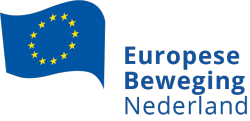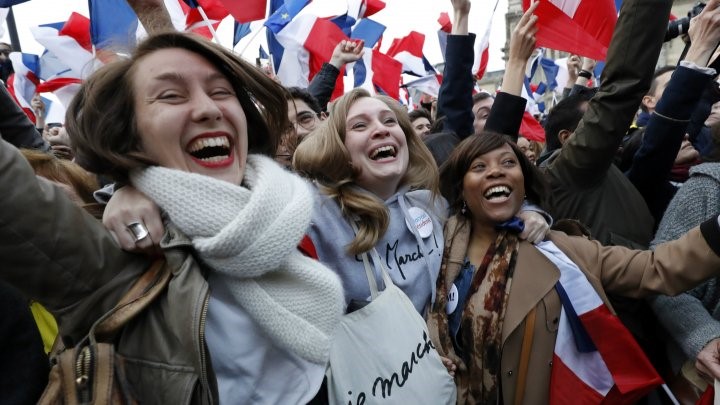The morning after the election of Emmanuel Macron to the presidency of France, many French and Europeans find themselves in a state of critical anticipation.
Certainly, many are glad and relieved to see that the presidency has gone to a person with an open social orientation, a constructive European stance. In a country with 23% youth unemployment and an economic order in dire need of reform, it is significant that many French citizens have put their hope in a relative ‘newcomer’ (“neither left nor right”), and dream that his election may shift the balances of power. At the same time, a substantial part of Macron’s electorate (43%) has primarily voted for him to keep his adversary Marine Le Pen out of the Élysée. Macron’s win in the first round amounted to merely 23,7%. And En Marche’s political agenda (https://storage.googleapis.com/en-marche-fr/COMMUNICATION/Programme-Emmanuel-Macron.pdf), especially its economic reform paragraphs, will take a lot of negotation to translate into practice, given France’s structures of vested interest.
The political landscape in France as elswhere in Europe is deeply divided and the political promise of a ‘brighter future’ still has to be delivered.
On Europe, Macron’s En Marche program is ambitious. It is focused on creating new employment, protecting Europe’s democratic values, investing in the eurozone, introducing a European minister of Economic Affairs and Finance, dealing with tax evasion, fighting against corporate flight, keeping European companies partially in Europe, with a Buy European Act. The French president wishes to generalize the Erasmus program to non-university student levels, create a proper European defence program, fight the many inefficiencies in European cooperation, protect crucial European industries, safeguard the internal market in which the same rules should apply to everybody, support start ups, create one energy market, with clear tariffs on carbon emission. This is a huge agenda for which senior negotiation skills will be required.
Fortunately, the main stakeholders in this European drama display a sense of gravitas. Nobody seems to be gloating: there is no reason for complacency. It is clear enough to most that we live in times of major socio-economic and cultural transformations and ditto challenges that can only be addressed collectively. Polarizations as in the rhetoric of ‘patriots versus globalists’ or ‘winners versus loosers’ of globalisation are not helpful. They divide people at a time when all effort should go to reconnecting and uniting.
Furthermore, the current complexity of things is impossible for any single politician or group to handle. We need to free ourselves from any Messiah complext. We just have to recall how politicians like Barack Obama, Tony Blair or in our country Wouter Bos were also cheered into power, when they arrived as relative newcomers ‘full of promise’ on the scene: sooner or later, reality always kicks in.
Thus: if this is to be another moment of hope, we should not leave it to any president or political party to deliver, but construct it as an opportunity for a new social engagement and contract. Citizens will have to move out of their consumer or observers’ mode. We need to step up to the challenge as a matter of urgency. Interestingly enough, Macron’s Europe paragraph contains an interesting starting point for such dialogue when it proposes ‘citizens conventions’ to construct the new agenda for Europe. Let’s make that concrete. Let’s start there to help ‘load’ and substantiate Europe’s future. Since Europe is us, it’s future is ours!
Godelieve van Heteren, chair EBN

